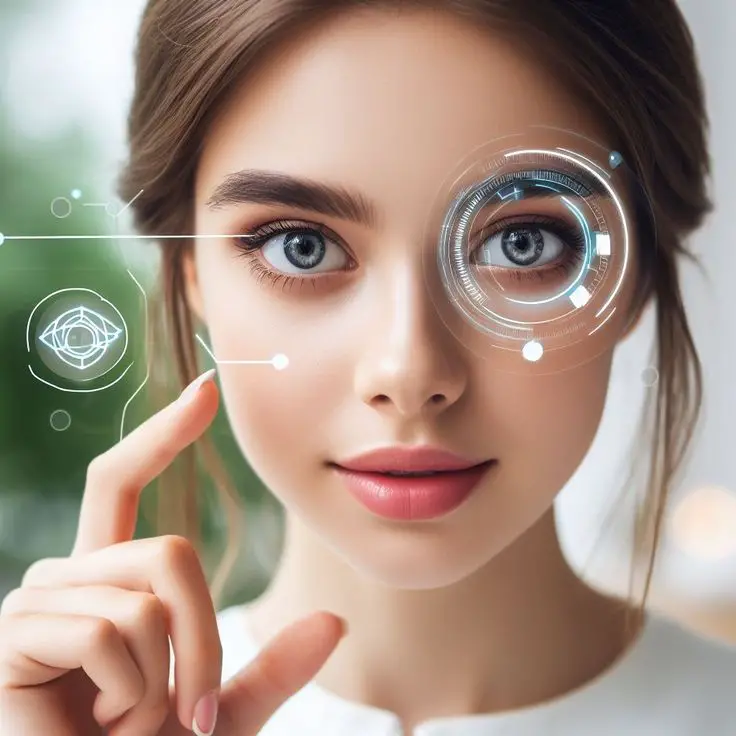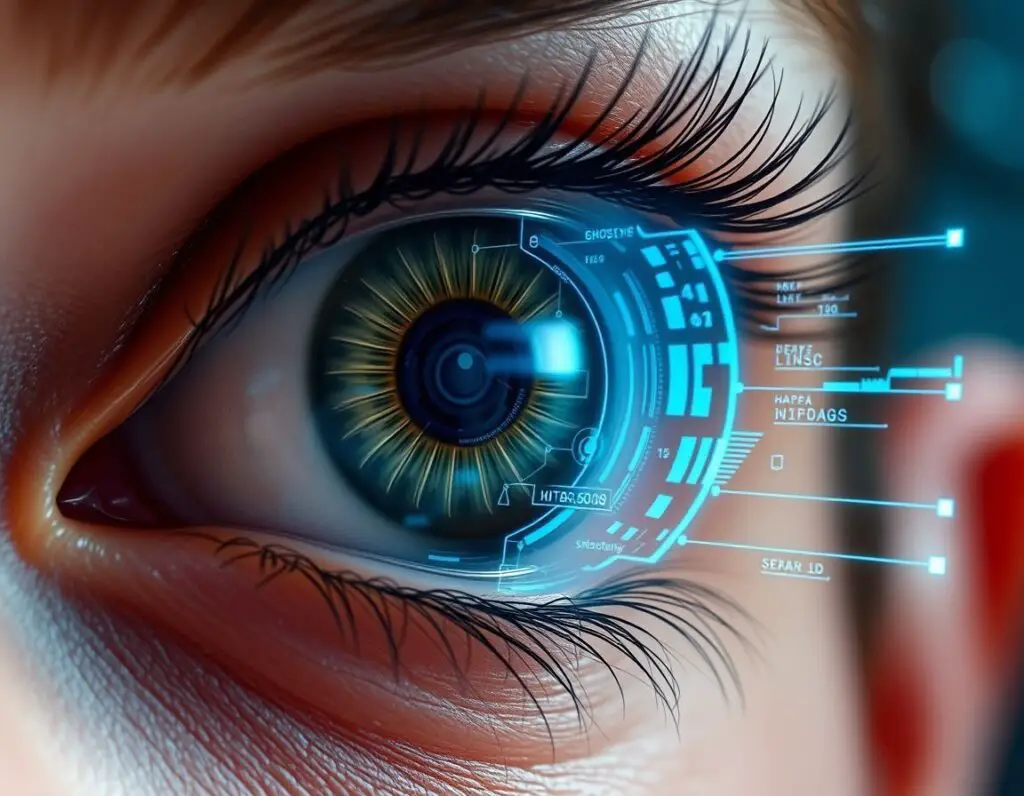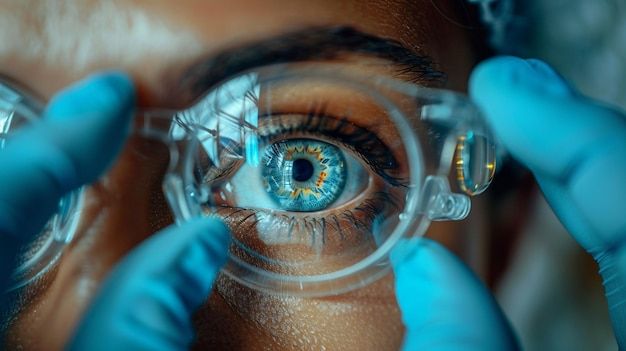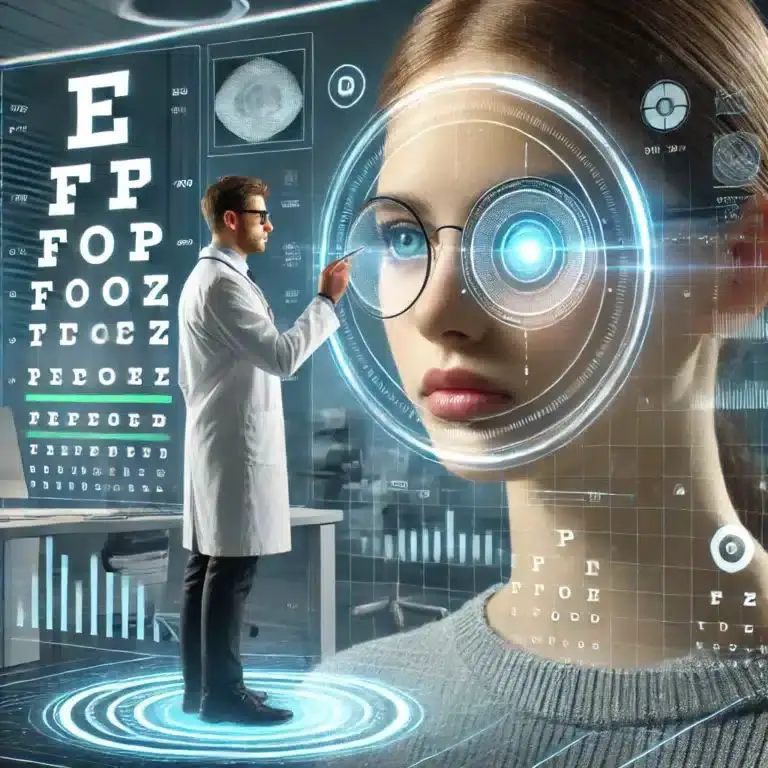The world of optometry is undergoing a groundbreaking transformation, thanks to AI in eye care. Artificial intelligence is no longer just a futuristic concept—it’s now a powerful tool helping eye doctors detect diseases earlier, personalize treatments, and improve patient experiences.
From diagnosing glaucoma to predicting myopia progression, AI is making eye care faster, more accurate, and more accessible. In this post, we’ll explore:
✔ How AI in eye careis being used in eye care today
✔ The most exciting AI-powered eye care technologies
✔ Benefits for both optometrists and patients
✔ The future of AI in optometry
Let’s dive in!

How AI is Transforming Eye Diagnostics
Early Detection of Eye Diseases
One of the biggest advantages of AI in eye care is its ability to detect eye conditions before symptoms appear. AI-powered imaging systems analyze retinal scans, OCT (optical coherence tomography), and fundus photos to spot early signs of:
- Diabetic retinopathy (a leading cause of blindness in diabetics)
- Glaucoma (often symptomless until irreversible damage occurs)
- Age-related macular degeneration (AMD)
- Cataracts
For example, Google’s DeepMind AI can analyze retinal images with 94% accuracy, often outperforming human specialists in detecting diabetic retinopathy.
Faster, More Accurate Diagnoses
AI algorithms process thousands of eye scans in seconds, reducing human error and speeding up diagnoses. This is especially crucial in remote areas where access to eye specialists is limited.

AI-Powered Eye Care Technologies You Should Know
a. AI-Based Retinal Imaging Systems
Companies like IDx-DR and Eyenuk have developed FDA-approved AI systems that autonomously detect diabetic retinopathy from retinal images. These tools allow primary care doctors to screen patients without needing an ophthalmologist on-site.
b. Smart Contact Lenses & Wearables
Tech giants like Mojo Vision are working on AI-powered smart contact lenses that:
- Monitor intraocular pressure (for glaucoma patients)
- Adjust focus dynamically (helping presbyopia sufferers)
- Track glucose levels through tears (for diabetics)

c. Tele-Optometry & AI Chatbots
AI-driven platforms like EyeCheck enable remote eye exams using smartphones. Meanwhile, AI chatbots answer patient questions, schedule appointments, and even provide post-surgery care instructions.
Benefits of AI in Eye Care
✔ More Personalized Treatments
AI in eye care analyzes patient data to recommend customized treatment plans, such as:
- The best type of contact lenses for a patient’s cornea shape
- Optimal LASIK surgery parameters
- Personalized myopia control strategies for children
✔ Reducing Healthcare Costs
Early AI detection prevents costly late-stage treatments. For example, catching diabetic retinopathy early can save up to $3,000 per patient in advanced care costs.
✔ Improving Accessibility
AI-powered portable devices bring eye care to underserved rural areas, schools, and nursing homes where specialists are scarce.

The Future of AI in Optometry
Experts predict that by 2030, AI will:
🔹 Predict eye diseases years in advance using genetic and lifestyle data
🔹 Automate routine eye exams, freeing up optometrists for complex cases
🔹 Integrate with augmented reality (AR) glasses for real-time vision correction
However, challenges remain, including:
- Data privacy concerns (How is patient data stored and used?)
- Regulatory hurdles (FDA approvals for new AI tools take time)
- Patient trust (Will people accept AI diagnoses over human doctors?)
AI in eye care is not here to replace optometrists—it’s here to enhance their capabilities. By catching diseases earlier, improving accuracy, and making eye care more accessible, AI is setting a new standard in vision health.
As technology evolves, eye care professionals and patients alike must stay informed about these advancements. Whether you’re an optometrist looking to integrate AI tools or a patient curious about the future of eye care, one thing is clear: The future of vision health is smarter than ever.
Is AI in eye care better than human eye doctors?
AI excels at analyzing data quickly, but human optometrists provide empathy, judgment, and complex decision-making. They work best together!
Are AI eye exams accurate?
Yes! FDA-approved AI systems like IDx-DR have accuracy rates above 90%, often matching or exceeding human specialists.
Will AI make eye care cheaper?
In the long run, yes. Early detection reduces expensive treatments, and AI automation can cut down routine exam costs
